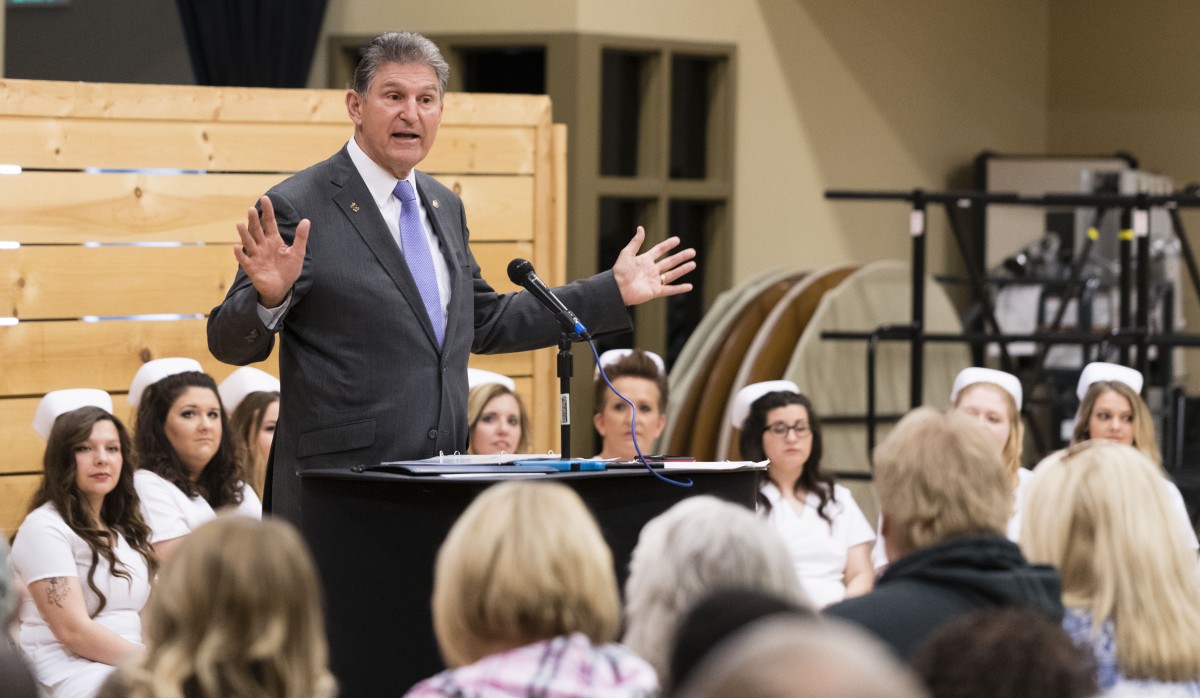When I entered adulthood and moved out of the house to attend college more than three hours away in Louisville, I made a commitment to myself that I would prioritize my mental health.
Back home, people didn’t really go to therapy. This was due to several factors: extremely limited access, the stigma attached to therapy in Eastern Kentucky, and I had simply been putting it off.
Being the daughter of a retired clinical psychologist and psychology professor, I was never against going to therapy, but with all of those barriers, it just never happened. College, a natural transitionary time in one’s life, seemed like the perfect time to start making my mental health a priority.
What I didn’t count on, though, was a long battle for understanding from the mental health field that wanted to erase my Appalachian identity through the process.
The first two mental health professionals I saw when I moved to Louisville were fixated on my Appalachian family dynamics, even going so far as labeling them “toxic” and diagnosing them all as “enmeshed,” a medical term meaning with very few personal boundaries.
But when I tried to explain to them that my Appalachian familial dynamic was very similar to that of the Asian side of my family — almost identical, in fact — I was met with the explanation that it was different. That was a part of the Asian (specifically Filipino) culture. It is widely accepted by mental health professionals that Asian cultures are more collectivist in their mindsets. This means that we prioritize the needs of the whole, the entire family for instance, over that of an individual.
What I experienced in my search for mental health care was bias, something I would argue is widespread for Appalachians looking for this kind of care. And there is plenty of research that helps prove that my experience isn’t just a one off.
“I think if a counselor doesn’t understand the culture, there is going to be a lot of misinterpretation,” says Dr. Nicole Schnopp-Wyatt, professor of Counseling and Human Development at Lindsey Wilson College. Schnopp-Wyatt teaches a multicultural class as well as one that focuses specifically on Appalachia, and explained that, often, counselors are taught to recognize the collectivist mindset within Asian and Latino communities, but are less inclined to do so with Appalachians.
“In the region, in a lot of cases, the family doesn’t want a young person to move five hours away to go to school, and so the young person doesn’t — they might be a caregiver, it might create disruptions within the family,” Schnopp-Wyatt says, “so that individual will put their [personal] goals aside to make sure the family goals are met.”
“If you’re not from a collectivist culture that’s a difficult thing to understand.”
By “collectivist mindset,” Schnopp-Wyatt explains that in Appalachia, individuals often live in close proximity to extended family, which brings the potential for significant support. “But an outsider, especially using psychological and counseling terminology, is going to classify that as ‘enmeshment,’ because the family is ‘in your business,’” she says.
While Western, white populations tend to prioritize individualism, Appalachia is a collectivist culture. This not only influences how families operate, but prioritizing family and community influences our politics, our economy and virtually every aspect of our lives.
In the past I have groaned and complained about the entire extended family keeping a detailed watch on my every move and butting-in with advice, unsolicited or otherwise, but as I have gotten older, I have learned to appreciate it and count myself lucky. Rather than encouraging someone to outgrow or overcome their culture, having a counselor who understands the nuances of it is important.
Culturally-responsive care ties into addressing the structural and stigma-based barriers Appalachians often face when it comes to mental health. Geographic isolation and past exploitation are both reasons that “outsiders” — or counselors who may not be familiar with the region or community — struggle to earn trust of patients.
“Therapy is all about trying to build a rapport with your client to know what they believe in, to know what they value and you try to base your therapy on those things,” says Pamela Miller, an outpatient therapist with more than 10 years of experience in the mental health field in Eastern Kentucky.
Building that rapport with culturally-responsive care is a solution to the larger mental health crisis facing Appalachians: The American Psychological Association reports that Appalachians disproportionately experience adverse living conditions and are “over-represented in the nation’s worst quintile for four of the five measures of social determinants of health.” This failure to understand and effectively treat Appalachians during an ongoing Appalachian mental health crisis coupled with the disproportionality of access to mental health care and medical care in general exacerbates the problem entirely — and sadly, the Appalachian state of West Virginia has one of the nation’s highest suicide rates.
While access is one issue, what actual accessibility means is another. In other words, high quality of treatment and counselors who understand the culture of Appalachia is necessary to supporting Appalachians. For example, in a study of low-income women living in Appalachian Kentucky who had depression, researchers found that participants “stressed that poor treatment quality — not merely access — limited their engagement in treatment and at times reinforced their depression.” Researchers found that mental health interventions must acknowledge “rural cultural values of internal strength, positive thinking, and endurance,” and turn these into assets that actually assist in recovery and treatment.
In the textbook “Appalachian Americans: Issues and Concerns for Counseling and Psychotherapy,” Dr. Daya Singh Sandhu, director and professor of Counselor Education and Supervision at Lindsey Wilson College, writes that mental health professionals, counselors and psychologists will benefit significantly if they familiarize themselves with the social, cultural and economic background of their clients and patients.
Part of ensuring Appalachians have access to mental health care and reducing stigma means centering approaches to treatment that understand Appalachian culture. More than anything, it seems that without a consistent effort of recognition of the Appalachian Identity as legitimate and not something to be “cured” or hidden, Appalachians will be unable to receive ethical mental health treatment — even if they are able to find it. If already-skeptical Appalachians are not treated ethically during mental health treatment by culturally-insensitive mental health professionals, this trend of avoidance of care will only get worse.
When I moved back to Eastern Kentucky during the height of the coronavirus pandemic and began seeing an Appalachian-native counselor, I was able to actually focus on the issues that I was attending therapy for in the first place. I no longer felt like my counselor was trying to “convert” me to a culture that was not my own. I was understood, and my culture was no longer diagnosed as a problem. I was then able to make strides in my mental health — all because I was finally receiving ethical treatment.
While mental health professionals that share in a specific culture may naturally be able to recognize it, a widespread discrimination of an entire cultural group deserves massive scrutiny by more than just mental health professionals and experts in Appalachia. Until then, how can Appalachia’s mental health crisis ever heal? It can’t.
Ariana Velasquez is a 2021 graduate of the University of Louisville where she received her BA in Political Science and now is pursuing a Juris Doctorate at the J. David Rosenberg School of Law at the University of Kentucky. She is a 23-year-old Appalachian freelance-journalist, columnist, poet, musician, activist, and organizer from Pikeville, Kentucky. Her work has appeared in the Appalachian News-Express, the Lexington Herald-Leader and Forward Kentucky, and she serves on the board of directors for Louisville Literary Arts.



